The eviction process in Louisiana is set to change in 2025, with new rules that landlords must follow to remain compliant. This process is a specific, multi-step procedure governed by state law.
This comprehensive guide by LeaseRunner will walk you through everything you need to know, from the initial notice to the final warrant, ensuring you follow the correct legal steps to protect your property and your rights.
Act No. 746 in Louisiana: New Rules for Electronic Monitoring Services
While not directly part of the standard eviction process in Louisiana, recent legislative changes can have indirect impacts on landlords and tenants. Act No. 746, which took effect in 2025, primarily governs the world of criminal justice but introduces new considerations for managing rental property.
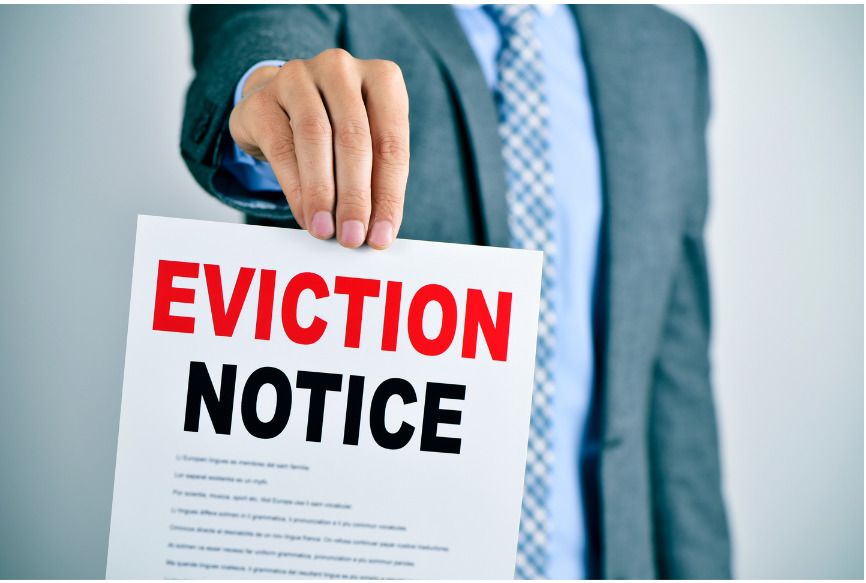
The primary purpose of the law is to create a more regulated framework for electronic monitoring
What Is Act No. 746?
In 2025, Louisiana enacted Act No. 746, introducing specific regulations for the use of electronic monitoring services in rental properties. Electronic monitoring in this context refers to technology that allows landlords to remotely track or monitor certain aspects of a property. It often occurs during court procedures involving lease violations or unlawful detainer cases.
Purpose & Conditions of the Law
The primary goal of Act No. 746 is to protect tenant rights while clarifying landlord rights when electronic monitoring is in place, creating a more robust and regulated framework for electronic monitoring. Under the law:
- Landlords must provide clear written notice to tenants before installing or activating any monitoring system.
- Monitoring cannot be used to harass, pressure, or unlawfully influence a rent payment dispute.
- Information gathered through monitoring must be handled according to legal procedures and may be admissible in court only under specific conditions.
By setting these conditions, the law balances privacy concerns with legitimate property management needs.
Impacts on landlords & tenants
For landlords, Act No. 746 requires more transparency and documentation before implementing any monitoring systems. Failing to comply could weaken their case during an eviction hearing or judgment.
For tenants, the law adds extra protections. It ensures that any surveillance is lawful and directly related to legitimate rental property concerns, such as lease compliance or damage prevention.
In short, while Act No. 746 does not overhaul the eviction laws, it can influence how evidence is handled and affect landlord–tenant relations, both of which play a role in the overall eviction process in Louisiana. Landlords should understand this law before taking action to avoid missteps that could delay or complicate their case in court.
Legal Grounds for Eviction in Louisiana
Before starting the eviction process in Louisiana, a landlord must have a legally valid reason recognized under state eviction laws. Below are the most common legal grounds for eviction in the state.
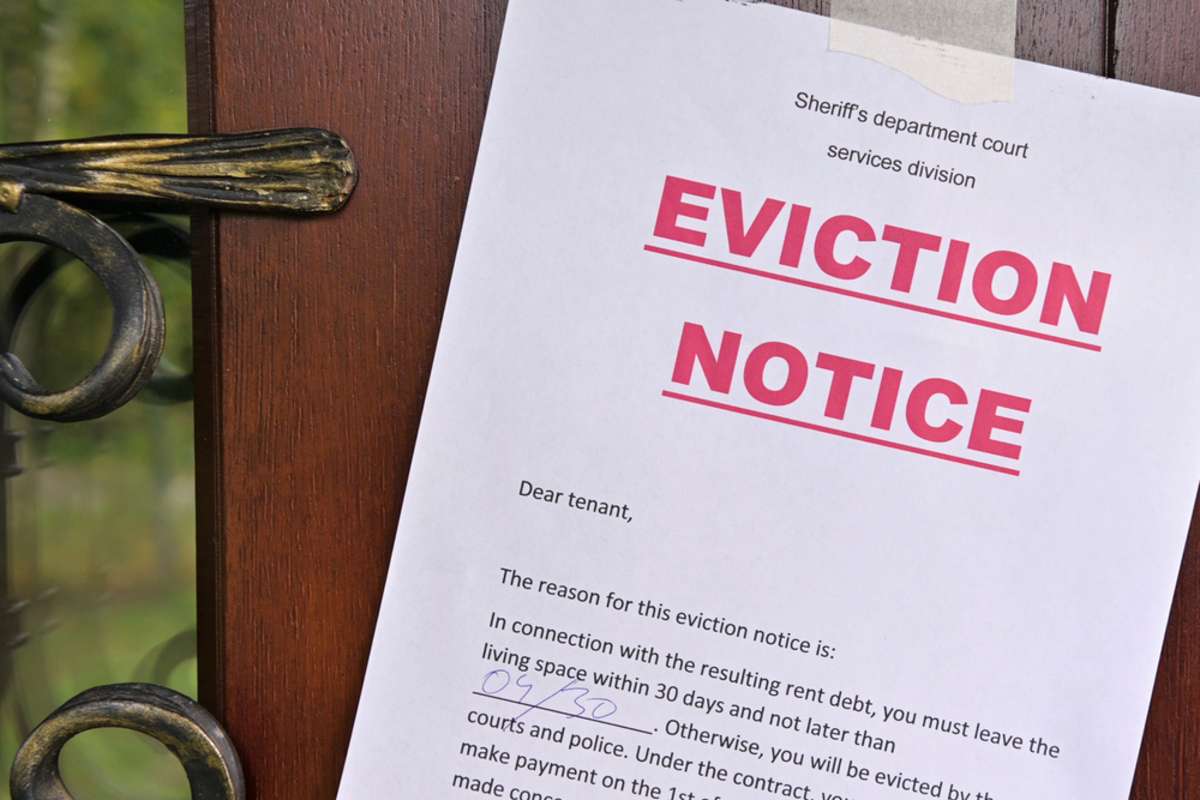
1. Nonpayment of Rent
In Louisiana, landlords are not required to provide a long grace period unless it is specified in the lease agreement. Once rent is overdue, a landlord may serve a notice to vacate, giving the tenant a short period (often 5 days) to pay or leave. If the tenant fails to comply, the landlord may proceed with filing an unlawful detainer action in court.
To reduce risk, landlords should run eviction checks on potential tenants before signing a lease. This helps them identify applicants who have a history of not paying rent or have been evicted in the past.
2. Lease Violation
A lease violation occurs when a tenant breaks the terms of the rental agreement. This can include unauthorized pets, property damage going beyond normal wear and tear, illegal activity, or exceeding occupancy limits in the rental property. Louisiana law allows landlords to serve a notice to vacate immediately for certain violations. However, others may require an opportunity to correct the breach before moving to the next legal step.
3. Expiration of Lease or No Lease Agreement
When a fixed-term lease ends, a landlord may choose not to renew it. For month-to-month tenants, proper notice—typically 10 days—must be given before ending the tenancy. These are often considered “no-fault” evictions because they do not arise from tenant misconduct. Still, landlords must follow the proper legal procedures to avoid challenges in court.
4. Illegal Activity or Threat to Safety
If a tenant engages in drug activity, violent behavior, or other conduct that threatens the safety of neighbors or the property, Louisiana law permits an expedited eviction process.
In these cases, landlords may bypass certain notice requirements and proceed directly to court for a judgment. Because these situations can be sensitive and complex, many landlords seek legal aid to ensure compliance with both tenant protections and landlord rights.
Serving an Eviction Notice in Louisiana
Delivering the right notice is one of the most critical steps in the eviction process in Louisiana. If the notice is served incorrectly or lacks required details, the court may dismiss the case, forcing the landlord to start over.
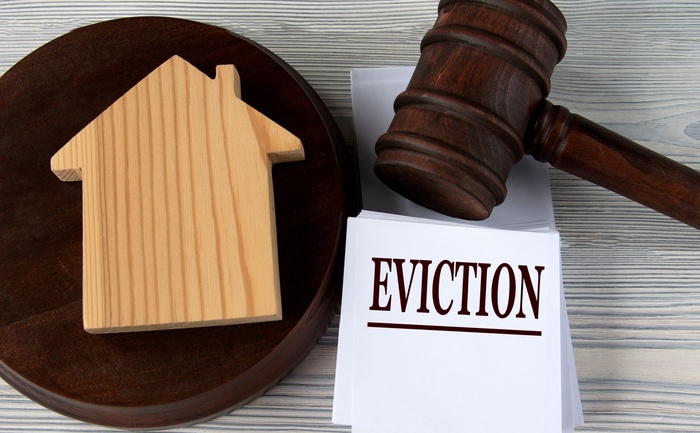
Identify the Correct Notice Type
Before moving forward, the landlord must determine which notice applies to the situation. For example:
- Nonpayment of Rent: Usually requires a 5-day notice to pay or vacate.
- Lease Violation: May require immediate notice or an opportunity to cure, depending on the violation.
- End of Lease Term: Typically, a 10-day notice for month-to-month tenancies.
Deliver the Notice Properly
Louisiana law allows eviction notices to be served in specific ways:
- Personal Service: Hand-delivering the notice directly to the tenant.
- Domiciliary Service: Leaving the notice with a person of "suitable age and discretion" who resides in the rental property.
- Posting and Certified Mail: If you are unable to personally serve the tenant or leave the notice with a suitable person, you may post the notice on the door of the property and also send a copy via certified U.S. mail with a return receipt.
Using an unapproved delivery method can make the notice invalid in legal procedures, leaving the rental property still occupied while the case stalls.
Document Proof of Service
It is imperative to create a clear record that the notice was properly served. This documentation is your evidence that you followed the correct legal procedures, should the case proceed to court. You should:
- Keep a copy of the written notice.
- Note the date and time the notice was served.
- Document the method of service (e.g., personal delivery, certified mail).
- If a witness was present during the service, have them sign a statement affirming that the notice was delivered.
- If using certified mail, retain the return receipt as proof of delivery.
Step-by-Step Eviction Process in Louisiana
The eviction process in Louisiana follows strict legal steps designed to protect both landlord rights and tenant rights. Missing any step can delay the case or result in dismissal, so it’s important for landlords to proceed carefully and in compliance with state law.
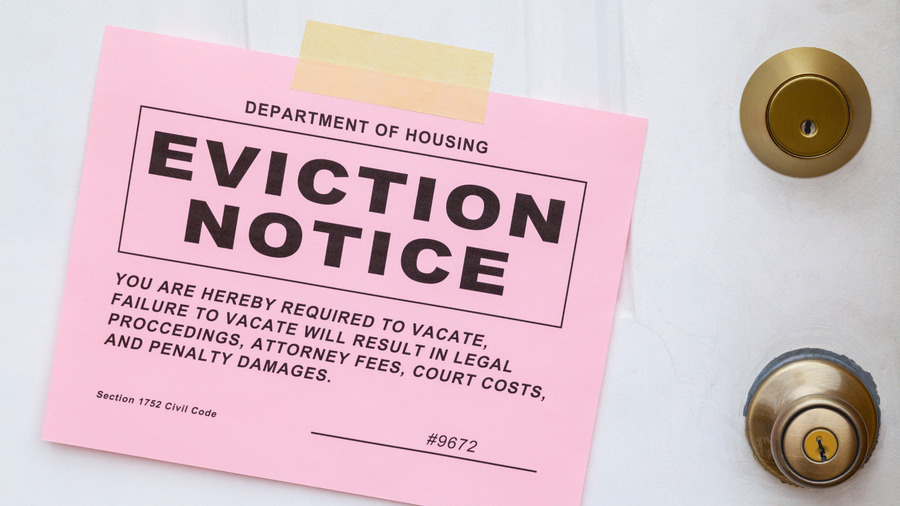
Step 1. Serve the Appropriate Notice
The process begins when the landlord delivers the correct eviction notice to the tenant, such as a 5-day notice for nonpayment of rent or a 10-day notice to terminate a month-to-month tenancy. This notice gives the tenant a chance to pay, fix a lease violation, or vacate before further legal action.
Step 2. File a Petition for Eviction
If the tenant does not comply within the notice period, the landlord files a Petition for Eviction with the appropriate parish court. This step formally starts the legal procedures and may require attaching a copy of the lease agreement, the served notice, and proof of service.
Step 3. Have the Court Serve the Tenant
After filing, the court arranges to serve the tenant with the eviction petition and a summons to appear in court. This is typically done by the parish constable or sheriff. The notice will inform the tenant of their tenant protections, rights to contest the eviction, and the hearing date.
Step 4. Attend the Court Hearing
Both the landlord and tenant present their cases during the court hearing. The landlord should bring all relevant evidence, including the lease, payment records, and any proof of violations. Tenants may argue defenses such as improper notice or violations of Louisiana eviction laws. In some cases, tenants may request legal aid to help navigate the process.
Step 5. Obtain the Judgment and Writ of Possession
If the court rules in favor of the landlord, it will issue a judgment granting possession of the rental property. If the tenant does not leave voluntarily within the court-ordered timeframe—often 24 hours to a few days—the landlord can request a Writ of Possession, authorizing law enforcement to proceed.
Step 6. Coordinate with the Sheriff for Removal
Only the sheriff or parish constable can physically remove a tenant from the property. The landlord cannot take self-help actions, such as changing locks or removing belongings. This final step ensures the eviction complies with Louisiana tenant protections while restoring possession to the landlord.
Eviction Timeline & Costs in Louisiana
The eviction process in Louisiana is a multi-step legal procedure that landlords must follow to remove a tenant from a property. The timeline and costs can vary significantly based on the specific circumstances of the case and the parish where the property is located.
Understanding the time and money involved in the eviction process in Louisiana helps landlords plan and avoid surprises
Required Documents for a Smooth Eviction in Louisiana
Having the right paperwork ready can make the eviction process in Louisiana faster, smoother, and less prone to delays in court. Below are the most important records you should prepare before filing.
1. Lease Agreement
A signed lease agreement outlines the rental terms, tenant responsibility, and landlord responsibility. The court will review this document to verify the agreed-upon rules, rent amount, and duration of the tenancy.
2. Eviction Notice
This is the formal notice served to the tenant explaining the reason for eviction, whether it’s nonpayment of rent, a lease violation, or the end of the lease term. It must meet Louisiana’s eviction laws requirements in both content and delivery method.
3. Proof of Notice Delivery
Courts require proof that the tenant received the eviction notice. This can include a signed acknowledgment, a postal receipt, or an affidavit from the process server. Without this, the court procedure may be stalled or dismissed.
4. Rent Payment Records
Payment ledgers, bank statements, or receipts showing late or missing payments can strengthen a landlord’s claim, especially in unlawful detainer cases involving rent disputes.
5. Evidence of Lease Violation
If the eviction is due to a lease violation, collect all relevant evidence, such as photographs of property damage, incident reports, or witness statements. The stronger the documentation, the more likely the judgment will be in your favor.
6. Records of Communication
It is always a good practice to keep a record of all communication with the tenant regarding the issue. This includes emails, letters, and text messages. These records can demonstrate that you made a good-faith effort to resolve the issue before resorting to the formal eviction process in Louisiana.
5 Tips to Avoid Eviction Pitfalls in Louisiana
Even though the eviction process in Louisiana is clearly defined by law, many landlords make mistakes that can cause costly delays or case dismissals. By following these tips, you can protect your investment, respect tenant rights, and maintain compliance with state eviction laws.
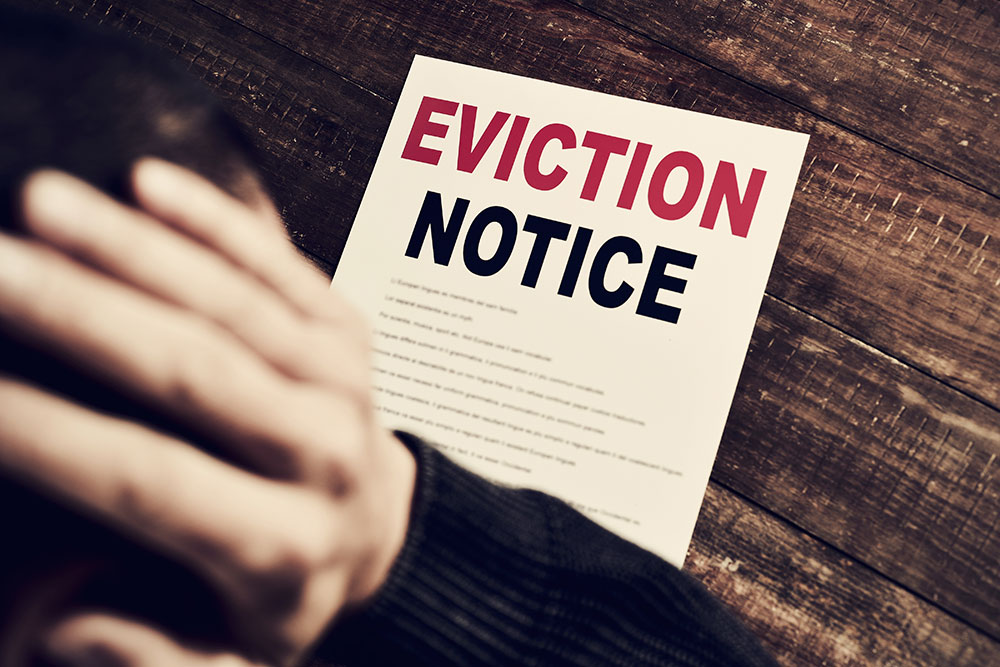
1. Use a Well-Written Lease Agreement
A clear and detailed lease agreement helps prevent misunderstandings. It should outline rent payment terms, rules for the rental property, and consequences for lease violations. Services like LeaseRunner can provide legally compliant lease templates tailored to Louisiana laws.
2. Serve the Correct Notice Every Time
The wrong type of notice—or an improperly delivered one—can invalidate the case. Always follow Louisiana’s legal procedures for notices, including correct timeframes and delivery methods.
3. Keep Thorough Records
Detailed documentation, such as rent ledgers, communication logs, and photographs of property damage, can be critical in court. These records help demonstrate that you respected both landlord rights and tenant protections throughout the process.
4. Avoid Self-Help Evictions
Never change the locks, remove belongings, or shut off utilities without a court order. Such actions violate tenant rights and can result in penalties against the landlord.
5. Seek Legal Guidance When Needed
If you’re unsure about a step in the process, consult with an attorney or seek legal aid. Professional advice ensures you comply with Louisiana’s eviction laws and improves your chances of a smooth, timely resolution.
Conclusion
The eviction process in Louisiana requires careful attention to state laws, timelines, and documentation to avoid costly mistakes. Whether the eviction is due to any reason, landlords must follow each legal step precisely to protect their rights and avoid disputes.
LeaseRunner provides expert guidance on Michigan's tenant laws to help landlords handle evictions efficiently. By understanding your rights, staying organized, and following the law, you can manage the eviction process legally and avoid expensive mistakes.
FAQs
1. How long does the eviction process in Louisiana take?
In most cases, the process takes 18–44 days, depending on court schedules, tenant responses, and whether delays occur.
2. Can a landlord evict a tenant without going to court in Louisiana?
No. Self-help evictions are illegal. Landlords must go through the formal court procedure to regain possession of the property.
3. What happens if a tenant refuses to leave after an eviction judgment?
The court will issue a Writ of Possession, and the sheriff will enforce the eviction. The landlord cannot personally remove the tenant.
4. Can tenants fight an eviction in Louisiana?
Yes. Tenants can raise defenses such as improper notice, violation of tenant protections, or disputes over rent or lease terms.
5. Do landlords need a lawyer for the eviction process in Louisiana?
While not legally required, hiring an attorney or seeking legal aid can help ensure that all legal steps are followed correctly and that the landlord’s rights are fully protected.



